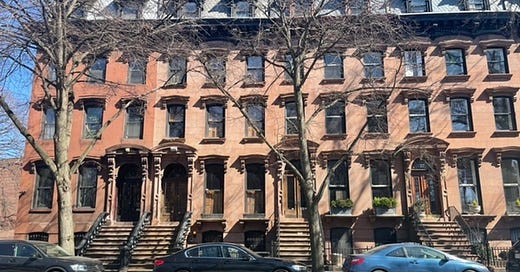It’s been a year since the pandemic fundamentally altered our lives — when much of America began sheltering in place, social distancing, and working from home if their jobs allowed it. When Vox Media told us a year ago we’d all be working from home until at least April 3rd, I remember thinking, Three weeks of working from home! What a long time! In retrospect, I truly cannot believe how innocent I was, and that I’m still working from home a year later.
As we hit this anniversary, there’s certainly some feelings of optimism — people are getting vaccinated, summer looks very promising — but also nearly everyone I know is hitting their pandemic wall or feeling some level of burnout. And one reason why is that despite all the ups and downs and grief and frustrations of the past year, we kept working through it all. Many people kept working while also taking on new responsibilities, like full-time childcare, home-schooling their kids, or caring for sick relatives.
Last year, a refrain made its way around social media: “You are not working from home. You are at home, during a crisis, trying to work.” And later, its cousin: “You are not working from home, you’re living at work.” Those words have stuck with me over the past several rollercoaster months. I have wondered many times why I can’t focus, why I can’t get more work done, why I’m not as productive as I’d like. But maybe the problem wasn’t that I’m not getting more work done, it’s how I’ve been trained to think I always need to get more work done. As Katie Hawkins-Gaar wrote in her newsletter last week: “I’m blaming myself as I’m struggling to work at home, with a baby, in a pandemic. Rarely does it occur to me that the situation itself is the problem.”
Now that we no longer have clear boundaries between home and the office, it became easier than ever to work more, to work all the time. We bent over backwards to keep everything at work running as normal, even as we lived through a crisis. Nothing symbolized that more to me than the moments on Zoom calls where people frantically apologized for their poor home internet connection or for a child calling for their attention, as if they were to blame for such things. It’s not that our home lives have intruded into our work lives; it’s that work has intruded into our homes.
America has long had a uniquely obsessive relationship with work: whereas other countries give workers several weeks of guaranteed paid leave, we instead romanticize workaholism and call it “hustle” and “grind.” We glamorize side hustles. We have no federally guaranteed paid sick leave or paid family leave. We tell young people that they should find their “dream jobs,” and that if they love what they do, they’ll never work a day in their life. We live to work instead of working to live. So it is perhaps not surprising that when the pandemic hit, we never lowered our expectations of work output to adjust for the fact that we were living through an unprecedented crisis. We just kept on going, because it’s what we’ve always been trained to do.
So we expect continued productivity, and when we inevitably hit the point of burnout, we prescribe individual solutions. We think we can fix it ourselves with a bubble bath or wine or a hike or meditation. “You can’t self-care your way out of capitalism,” Ann Friedman said on a recent Call Your Girlfriend podcast. She’s right. The burnout that comes with this exhausting pandemic year isn’t something that will be cured by a yoga class or a massage. The problem isn’t with ourselves, it’s with the system; it’s America’s unyielding work-above-all culture colliding with a global pandemic. It will only be fixed with a fundamental re-ordering of our priorities, with a culture and a government that understands that people are humans first and workers second.
Related reading + listening
Living at work, Katie Hawkins-Gaar
You are not working at home, Forge
You are not working from home, The New York Times
Only your boss can cure your burnout, The Atlantic.
🎧 Burnout, Call Your Girlfriend
Good things to read
Late-stage pandemic is messing with your brain, The Atlantic.
How to practice, The New Yorker.
Surviving a year without touch, Gen/Medium.
Inside Andrew Cuomo’s toxic workplace, New York Magazine.
Private schools have become truly obscene, The Atlantic.
Revisiting the great Covid social media scold, Vanity Fair.
Becoming a new parent during the pandemic was the hardest thing I’ve ever done, The Atlantic.
Meghan Markle and the long history of authenticity policing, Vox.
The rigorous empathy of “Oprah with Meghan and Harry,” The New Yorker.
Confessions of an influencer whisperer, Town & Country.
My mom believes in QAnon. I’ve been trying to get her out, Buzzfeed News.
Good things to cook
This week I made: Alison Roman’s eggplant parm. Julia Turshen’s maple soy salmon (in her Small Victories cookbook). Shrimp scampi with spaghetti squash. And crispy spiced lamb with cauliflower and dates (from Sheela Prakash’s Mediterranean Everyday cookbook).
Thanks for reading! If you like this newsletter, you can click the “heart” at the top of this post on Substack or share it on social media or forward to a friend — they can subscribe at nishachittal.substack.com. You can also leave a comment on this post to tell me what you think! And you can follow me on Twitter here and Instagram here.




wow, 1st read, will read again tmr and comment more